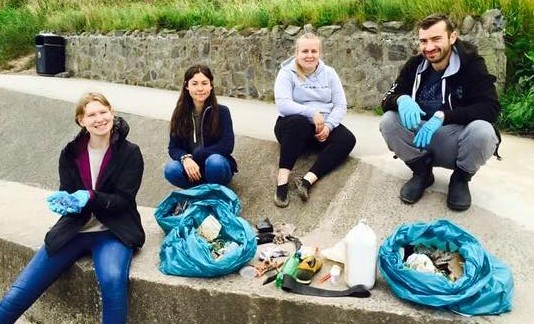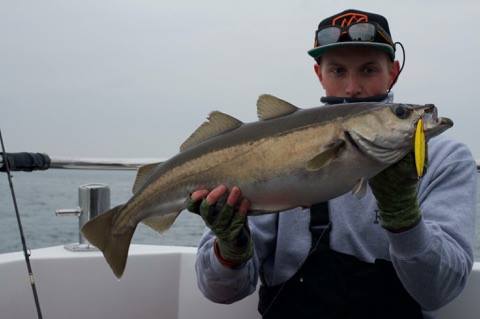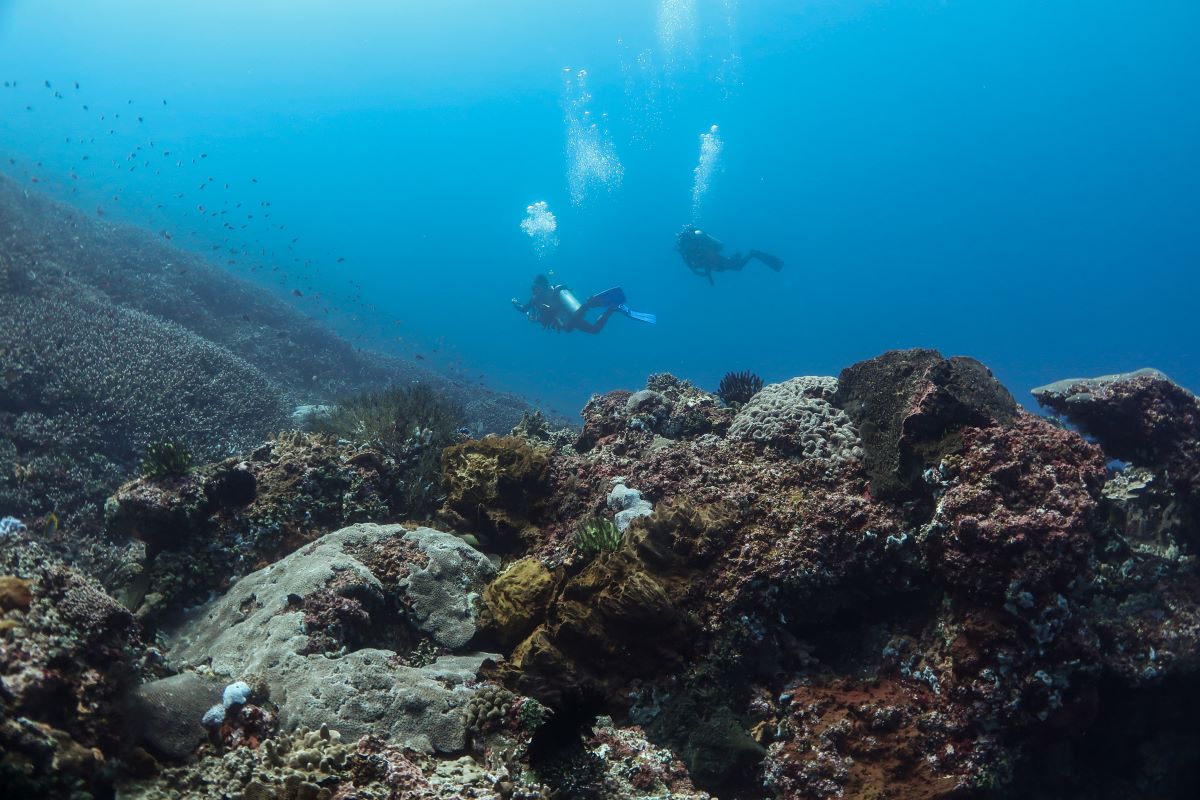News
The ocean is suffering – here’s how you can help

The oceans are suffering. Around 8 million items of litter enter the marine environment every day; plastic is now the most common element found in the ocean. One hundred thousand sea mammals are killed in the ocean by pollution each year, and another three hundred thousand dolphins and porpoises die each year because of becoming entangled in ghost fishing gear.
Stopping pollution and removing pollution from the ocean is a momentous task. But everything begins with small steps; some can be done from the comfort of your own home, and some can be integrated into the classic bank holiday trip to the seaside.
Some ocean friendly choices are:
Use bags for life instead of normal plastic bags
A plastic bag can take between 150 years to over 1,000 years before it degrades. However, it doesn’t biodegrade, it’s broken down by light into tiny little fragments of plastic, which are toxic – these are known as microplastics. In relation to the ocean, an estimated 1,000,000 birds, 100,000 turtles, and countless other sea organisms die each year from ingesting plastic, according to Greenpeace. They can easily mistake plastic bags for jellyfish and other edible sea creatures. Using a reusable carrier bag prevents more plastic entering our oceans.
Join a beach clean
Bank holidays are always an excuse to visit the seaside – have some chips sat on the pier, watch the kids fight over who has built the best sandcastle… or you could join one of the many groups of people who spend their weekends/bank holidays cleaning the beaches. They collect washed up cans, plastic bottles, toys… all sorts of things! There are events organised all over the UK for people to take part in (here, here, here). Or you could organise you own! Maybe have an impromptu tidy up, making it a game for the children. To see some of the amazing things which have been found on beach cleans look here.
Recycle
Recycling 14 trees worth of paper reduces air pollutants by 165,142 tons. I know we’re discussing marine pollution, but ocean acidification is caused by the uptake of CO2 from the air, and recycling could potentially slow the rate of coral bleaching and save calcified organisms, which are damaged by increasing ocean acidity.
The dumping of used plastic destroys sea life at an estimated 1,000,000 sea creatures per year! Glass and plastic take the longest to degrade, but are completely recyclable, which is why it’s important we recycle them. It’s believed that 60%-70% of rubbish we put in our bins could have been recycled instead. Recycling doesn’t just reduce the amount of waste entering the ocean, it also reduces the amount of power we use. Theoretically, we could hit two birds with one stone. When we produce aluminium products from virgin metal it consumes close to 100 times the power required to recycle aluminium. In the UK an estimated 70% of our energy comes from non-renewable energy sources. If we use less energy we will lower the amount of air pollution, which I’ve already mentioned has horrific effects for our oceans.
Food scraps to compost
In 2009 it was found that an estimated 25% of food bought by households was thrown away. Food waste contains Nitrogen and Phosphorous which when in water can lead to eutrophication and algae blooms.
By collecting your food waste and using it to produce compost you are reducing your rubbish – and that compost can be used instead of artificial fertilizers.
Compost is great for the environment and great for you. It’s free to make and replaces somewhat expensive fertilizer and shop bought compost.
To find out how to set up your own compost look at my previous article here.
Purchase items with minimum packaging
When you go into a supermarket, it’s likely you will see more packaging that you will food. I know I do! Apples surrounded in Styrofoam holders swarming with plastic wrapping, bread suffocating in plastic bags…
To reduce your waste and plastic usage try and purchase items which come with less packaging, or at least recyclable packaging. Most plastic can be recycled, but make sure you read the packaging, and look for the recyclable symbol. Styrofoam is not recyclable and can take over 500 years before it typically begins to break down. In the ocean, Styrofoam is often mistaken for food and eaten; when inside an organism, it blocks the digestive tract and the organism will usually starve and then die.
Read the label
I will admit I am terrible for looking at labels when I’m shopping, but I try and check for the basics: sustainable fishing (the blue tick – if you want more information about how to shop for fish sustainably there is information here). I also avoid microbead products. Although they are now being phased out (UK and USA), it will still take years before they are completely gone from our shelves. A new one I will be adding to my list is cleaning products which contain phosphate which can lead to eutrophication (excessive richness of nutrients) and algal blooms (rapid growth of algae, which can cause oxygen reduction). A small change in your shopping habits can make a big difference to the ocean; for example, allowing fish stocks to increase.

Sustainably caught Pollack. Credit John Wheeler
On a positive note, we are making a difference – we are increasing the amount of power we receive from renewable sources; we are also reducing the amount of plastic we use. We’re moving forwards to a brighter future – one with a healthier ocean.
I hope these tips have given you a few ideas to help you lead a greener life, and to know that no matter how far away from the coast you are, you matter to it.
Marine Life & Conservation
IUCN Spotlights Green Fins at Bali Ocean Days 2025, Calling for Stronger Business Model in Marine Conservation

IUCN (International Union for Conservation of Nature) Global Ocean Director, Minna Epps, has spotlighted Green Fins Indonesia along with a call for stronger business models that sustain marine conservation. Speaking at the inaugural session of Bali Ocean Days 2025 held on 7-8 February, Epps emphasised the need for sustainable financing to support and scale marine conservation initiatives such as Green Fins.

Activities earlier in the week with the Coral Triangle Center in Sanur and Ceningan Divers in the Nusa Penida Marine Protected Area shaped the IUCN Ocean Director’s message at the conference and showcase, aligning with the theme of the blue economy and impact finance to sustain marine ecosystems.

“Tourism has such a big impact on marine biodiversity, and we need it to adhere to a certain code of conduct,” Epps said. “That is why through our funding facilities, we worked with The Reef-World Foundation advancing Green Fins so dive operators can become certified with standards. But this kind of initiative has been around for a long time and it’s also a tool used to improve [MPA management], but it needs to come with a business model. I also believe in market-based instruments to evolve this programme.”

IUCN’s visit is part of their Blue Natural Capital Financing Facility (BNCFF), which supports at least 21 projects around the world, building the business case for investing in the future of our ocean.
In Indonesia, the project supported by IUCN was developed in partnership with The Reef-World Foundation, the Coordinating Body on the Seas of East Asia (COBSEA) and the Coral Triangle Center, which serves as the local implementing organisation for Green Fins. The initiative engages marine tourism businesses through voluntary sustainability certification based on the only internationally recognised environmental standards for diving and snorkelling operations. Green Fins’ activities aim to reduce negative environmental impacts associated with marine tourism activities as well as improve the management of marine protected areas.

IUCN’s promotion of Green Fins in Bali Ocean Days signals the need for greater private sector engagement in marine conservation across Indonesia and beyond.
Investors, donors, marine tourism operators and stakeholders looking to support scalable marine conservation solutions are encouraged to explore opportunities with The Reef-World Foundation, the international coordinator of the Green Fins initiative. To learn more about sustainable marine tourism and how to get involved, visit www.reef-world.org.

About Reef-World
The Reef-World Foundation is a registered UK charity which delivers practical solutions for marine conservation around the world. The charity promotes the wise use of natural resources – particularly coral reefs and related ecosystems – for the benefit of local communities, visitors and future generations. It is dedicated to supporting, inspiring and empowering governments, businesses, communities and individuals around the world to act in conserving and sustainably developing coastal resources.
Reef-World leads the global implementation of the UN Environment Programme’s Green Fins initiative, which focuses on driving environmentally friendly scuba diving and snorkelling practices across the industry globally. As such, the charity provides low-cost and practical solutions to local and industry-wide environmental challenges associated with the marine tourism industry. It provides education and capacity-building assistance to empower environmental champions (within the diving industry, local communities, authorities and governments) to implement proven coastal resource management approaches.
Visit www.reef-world.org to learn more or follow them on Facebook, Instagram and X.
About Green Fins
Green Fins is a proven conservation management approach – spearheaded by The Reef-World Foundation in partnership with the UN Environment Programme – which leads to a measurable reduction in the negative environmental impacts associated with the marine tourism industry. The initiative aims to protect and conserve coral reefs through environmentally friendly guidelines that promote a sustainable diving and snorkelling tourism industry. It provides the only internationally recognised environmental standards for the diving and snorkelling industry and has a robust assessment system to measure compliance.
Green Fins encourages and empowers members of the diving industry to act to reduce the pressures on coral reefs by offering dive and snorkel companies practical, low-cost alternatives to harmful practices – such as anchoring, fish feeding and chemical pollution – as well as providing strategic training, support and resources. By reducing the local direct and indirect pressures tourism puts on coral reefs, it helps make corals healthier and more resilient to other stresses such as the effects of climate change. Look for the Green Fins logo when booking your next dive trip.Visit www.greenfins.net to learn more or follow the initiative on Facebook, Instagram and X.
News
Filming 360 in The Bahamas

In December 2024, the Shark Trust had a very special opportunity to film sharks and rays in The Bahamas. Frogfish Photography are the Bahamas Dive Ambassadors for the UK. And Caroline, Deputy Editor at Scubaverse, is the Marketing Manager at the Shark Trust. So, when the need arose to film footage of several species of shark and ray for a new Shark Trust project, The Bahamas seemed the perfect fit. A huge thank you is needed here to the Bahamas Ministry of Tourism. As they stepped in to fully support the trip both financially and practically. Ensuring that the filming expedition ran smoothly, and that we got as much time as possible in the water with sharks and rays, during the 10 day, 3 island trip.

The Bahamas is famous for its sharks and rays. Divers flock there to experience getting up close to a range of species. Our itinerary saw us visit Nassau, Bimini and Grand Bahama. It packed in as many in-water experiences as possible and had us dive, snorkel, and even take a submarine to experience them in a variety of different habitats and to capture them on film. We saw 148 sharks and rays from 8 different species (all of which have been logged on the Shark Trust Shark Log!).

But why were we there? The expedition was designed to fulfil the needs of two new projects being launched by the Shark Trust in 2025. The filming done underwater on this trip was the start of creating OneOcean360: A Shark Story. A new 360 immersive experience designed primarily for immersive domes and planetariums. The film will be the nearest experience to getting in the water with sharks and rays without getting wet! It will bring the world of sharks to an audience that may never get the chance to experience it first-hand. A Shark Story aims to deepen people’s understanding of sharks, uncovering and illustrating why they are so wonderful as well as being vital to marine ecosystems.
The film is being made in collaboration with Real Immersive. Also based in Plymouth, they have an immersive dome and are providing the technical expertise behind creating this unique experience. Reviewing the footage in the dome has been an invaluable part of the process. Both inspiring the team and allow us to refine the filming techniques to suit this immersive theatre.

You might imagine that we are using expensive cameras and even more expensive housings. But this is not the case. The entire project is being filmed using Insta360 X4 cameras. With only a few simple additions to the standard dive setup. The INON weight plate allowed us to attach this camera to a dive weight, set it down on sand or wreck, and then swim away and let the sharks be the stars. And the results are very exciting. The film will be ready this autumn. It will be accompanied by an educational pack for teachers to take away after school trips to see the film. Encouraging all those that see it to continue learning about these incredible animals.
You can support the creation of OneOcean360: A Shark Story by heading to the crowdfunder page and donating or selecting a reward.
https://www.crowdfunder.co.uk/p/a-shark-story
Read about the shark and ray dives we did on Nassau, Bimini and Grand Bahama in our next blog post coming soon on Scubaverse.
-

 Gear Reviews1 month ago
Gear Reviews1 month agoGear Review: SurfEars 4
-

 News3 months ago
News3 months agoSanta Divers take the Plunge for Charity
-

 Marine Life & Conservation2 months ago
Marine Life & Conservation2 months agoPaul Watson Released as Denmark Blocks Japan’s Extradition Bid
-

 Blogs2 months ago
Blogs2 months agoJeff Goodman Launches Underwater Moviemaker Course with NovoScuba
-

 Blogs2 months ago
Blogs2 months agoExperience Malta and Gozo in 2025: A Paradise for Divers and Culture Lovers
-

 News2 months ago
News2 months agoDive into Adventure: Limited Space Available for January Socorro Liveaboard Trip with Oyster Diving
-

 Blogs3 months ago
Blogs3 months agoThe Benefits of Underwater Photography Workshops
-

 Blogs3 months ago
Blogs3 months agoDiscover Curaçao with the Ultimate Dive Vacation Guide – 2024 DEMA Special Edition















